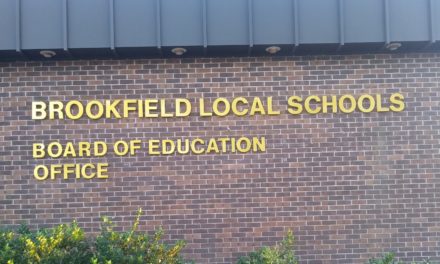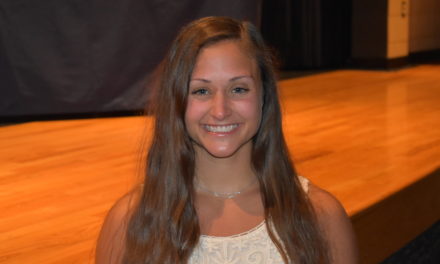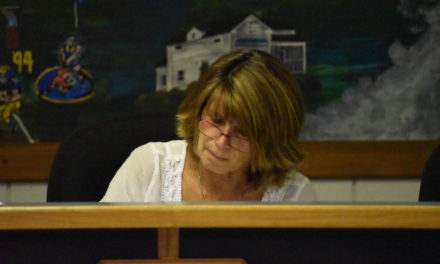 The Ohio legislature’s adoption of the Fair School Funding Formula is good news for Brookfield Local School District and for the district’s teachers, who are getting uncharacteristic raises under a new contract.
The Ohio legislature’s adoption of the Fair School Funding Formula is good news for Brookfield Local School District and for the district’s teachers, who are getting uncharacteristic raises under a new contract.
The new money also is likely to complicate the district’s request for a permanent improvement levy, which will be on the November ballot.
Fair School Funding Formula
The Fair School Funding Formula was created to address deficiencies in state funding of schools that led to years of legal wrangling and an Ohio Supreme Court determination that a previous school funding formula was unconstitutional.
The two-year state budget signed by Gov. Mike DeWine in early July awards Brookfield an extra $1,062,449 for the 2023-24 school year, and $580,368 for the 2024-25 school year, said district Treasurer Jordan Weber.
The money is coming as an unrestricted grant in aid, he said. “That’s money we get from the state to operate. Whether we use it on people, chairs, lights, cutting the grass, that’s money we get. Not a lot of strings attached, other than the normal rules and regulations. That was what we were hoping for. That is a huge shot in the arm there.”
Weber said he expects that any increases beyond 2024-25 will be smaller “because that was such a long-fought battle for the way they actually do the formula for funding.”
Teacher’s contract
The district knew back in the winter that, if the state adopted the Fair School Funding Formula, it would benefit Brookfield. For that reason, financial negotiations with the Brookfield Federation of Teachers were put off until officials knew for sure, Weber said.
The district did not want to immediately spend all of the increase in state funding “right away, but we really knew, it was certainly (Supt.) Toby (Gibson)’s idea, and the board was behind it, that salaries and getting teachers where they need to be was priority number one,” Weber said.
“We’re a small district and our staff is on the lower side of salaries across the area,” Gibson said. “If you want to retain the teachers you have, you have to pay them accordingly or at least it’s competitive with other districts around here to keep them. The state Fair School Funding comes in, we get some extra money, which allows us to kind of step up and do that.”
That led to the school board on July 26 approving a three-year contract with the teachers that gives them a 4-percent pay hike in 2023-24; 3 percent in 2024-25; and 2 percent in 2025-26.
Under the previous contract, the teachers received pay hikes of 1.5 percent in 2021-22 and 2 percent in 2022-23.
The contract also:
- Awards ratification bonuses of $1,000 per teacher.
- Sets anniversary bonuses of $1,500 for teachers who reach 20 years of experience; $2,000 for 25 years; and $2,500 for 30 years.
- Sets early retirement notification incentive bonuses. A teacher who notifies the district of his or her intent to retire by Nov. 1 gets $7,500 payable the next school year. A bonus of $5,500 goes to a teacher who announces the intent to retire by Jan. 15; and $4,000 by March 1.
“The benefit of that (early retirement notice) is for planning purposes,” Weber said. “Because of the way we have to forecast, it is crucial to know as early as possible,”
Administrators need to know who will be leaving so they know what positions they need to fill, and can adjust schedules, if need be, he said.
“It’s hard to do all that if you do not know until someone retires in July,” Weber said.
The 77-member teachers union ratified the contract July 24, said union President Mary Arp.
“Both parties are looking forward to starting the school year with the agreement in place,” she said.
Weber said he hopes bargaining begins soon with the Brookfield Association of School Employees, which represents secretaries, bus drivers, custodians, cafeteria personnel and other non-teaching employees. Their contract ended June 30.
Starting teacher salaries
The state budget sets a minimum teacher salary, which forced the district to adjust the lowest salaries for the 2023-24 school year.
The contract sets salaries in steps based on a teacher’s experience and level of education. Step 0, for newly certified teachers with no experience, was to be under $35,000, so this year’s hires will start at Step 1, $36,416, Weber said.
“Next year, when someone starts on Step 0, they’ll be at $35,722,” he said. “It will be a little bit backwards for one year but that was the easiest way of doing that with those couple folks.”
The district’s starting salary in 2022-23 was $33,348.
The top salary under the new contract, for a teacher with a master’s degree plus 45 hours of continuing education and 32 years of service is $84,625 for 2023-44, Weber said.
Why vote for the levy?
Despite the extra state money, the district will continue with a permanent improvement levy referendum in November.
The district is asking for a 2.3-mill levy that would be used for anything with a lifespan of longer than five years, such as new construction, long-lasting repairs, buses and athletic facilities, Weber said.
The levy would raise about $337,000 a year, according to the county auditor’s office.
When asked why voters should support the levy, Gibson responded:
“We’ve been blessed with a new school. Now, we’re going on 13 years. Like your house, things break, and, the older the building gets, the more, larger purchases will have to come, whether it’s in the heating and cooling or water, hot water tanks, whatever it may be, the roof, all those things. We’re gonna start approaching that end of life. To kind of develop that little bit of a nest egg to pay for those things so we don’t bankrupt the district in terms of general funds is the whole idea behind it (PI levy). The Fair School Funding allows us to maintain the programs that we have and hopefully expand on them moving forward.”
Weber previously noted that a current estimate to replace the roof at the school is $2-$3 million.
Weber gave his take on the levy:
“The money that came from the state, that is earmarked, whether officially or otherwise, for salaries. It’s not really (earmarked), it just goes into the pot, but we’re trying to make sure that money – which $1 million does sound like a lot of money, but including benefits we have like a $9 million payroll – a million dollars can go out the window pretty quick, if you don’t watch it. We want to use the money from the state to pay the teachers and kind of run the school as it needs to be run. Almost all that (state) money that’s coming in, I don’t want to say it’s all spoken for, but it’s certainly not, ‘We have an extra million bucks in the bank and we call it a day.’”








